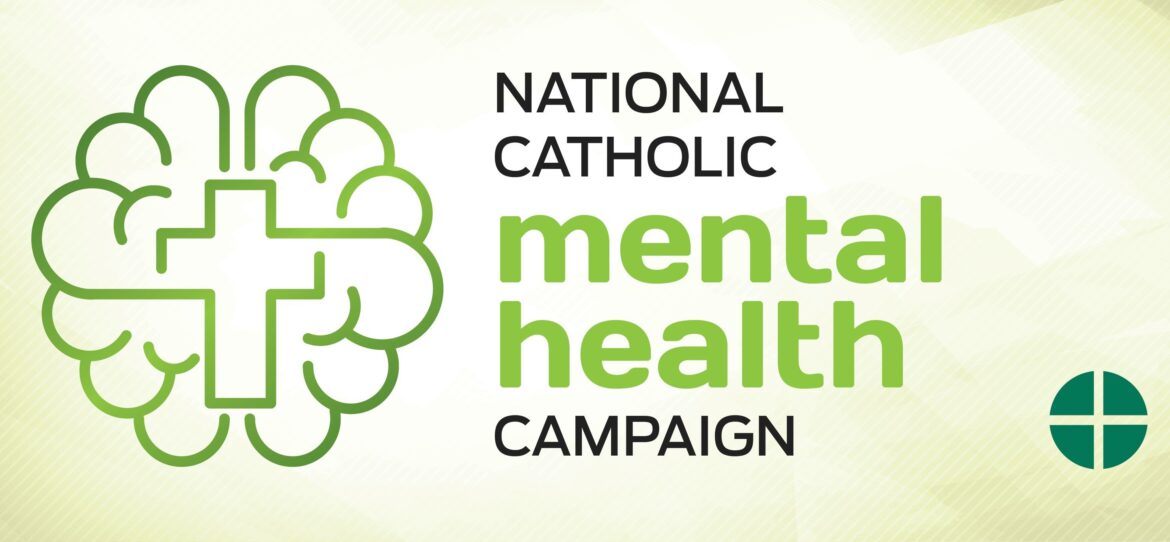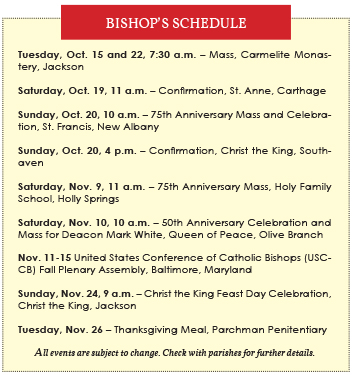By Bishop Joseph R. Kopacz, D.D.
In the heart of the month of October dedicated to human life at every stage, i.e. the dignity of the human person as the corner stone for the common good, the church also raises up the struggles that surround mental health. The National Catholic Mental Health Campaign is a year-round initiative, and each year, the U.S. Bishops engage in a concerted effort beginning on World Mental Health Day, Oct. 10 (since 1992), and continuing to the feast of St. Luke, patron of health care (Oct. 18). During this concentrated period three primary goals are promoted: (1) to raise awareness of the mental health crisis, (2) to combat stigma surrounding the topic of mental health, and (3) to advocate for all those impacted by the crisis. The message of the campaign is straightforward: Everyone who needs help should receive help.

Our nation faces a dire mental health crisis. According to the Center for Disease Control and Prevention, more than one in five adults live with mental illness. Apparently, half of Americans are expected to have some form of mental illness during their lifetime. Yet, it retains a pernicious stigma. It can interfere with individuals seeking treatment and finding an understanding community to support them.
A review of data from 144 studies of participants from around the world revealed that the stigma of mental illness remains one of the top barriers to accessing mental health care. There is particular concern about the mental health state of adolescents. Almost all indicators of poor mental health among high schoolers increased over the past decade. In 2021, 42% of students experienced persistent feelings of sadness or hopelessness, up from 28% a decade earlier. 22% seriously considered attempting suicide, up from 16%, and 18% made a suicide plan, up from 13%.
The data further reveals disparate mental health outcomes based on race. It further shows that while boys and girls are suffering deeply, they can face distinct challenges. The data is also troubling regarding a disproportionate number of individuals who identify as LGBTQ who face mental health difficulties. “As a church we must pay particular attention to these differences in our pastoral work and advocacy efforts,” the U.S. Bishops encourage. Compounding this issue is the shortage of mental health resources in far too many communities in our nation.

We are not alone in this struggle as mental distress spans the globe. The World Health Organization estimates nearly a billion people are living with a mental disorder worldwide. Global rates of depression and anxiety increased by more than 25% in the first year of the pandemic, according to the World Health Organization. Sister Carneiro, the new superior general of the Sisters Hospitallers, who serve nearly 1 million people with mental disorders across 25 countries, told Catholic News Service that the church “has an important role of hope, of offering a new horizon” to people struggling with mental illness.” She is qualified to speak for the church at home and abroad. While society must be active in addressing mental health issues, she explained that the church has a “unique differentiating element, because it is motivated by faith, with a dimension of hope and recognition that each person is more than their illness and has human dignity. When there is a mental health problem, it is not only the mind that is ill, but also all the being, the entire sense of life,” she said. “For the church and for us as a congregation, what is most important is to help vulnerable people who are suffering to again find a sense of life and hope.” Her message resonates well with the impending jubilee year whose theme is a Jubilee of Hope.

The USCCB recommends that each U.S. parish promote the annual novena within their communities. The novena officially goes from October 10 to 18, 2024. The daily texts for the novena can be found online at https://www.usccb.org/mentalhealth. First and last, may we never overlook the power of prayer in the service of health and hope.
For all the individuals who are impacted by issues of mental health, especially within our local community, that God may bless them with his grace and consolation, and that Catholics everywhere will accompany and support women and men and children who experience mental health challenges and promote mental and spiritual wellness. We pray through Christ our Lord, Amen.
